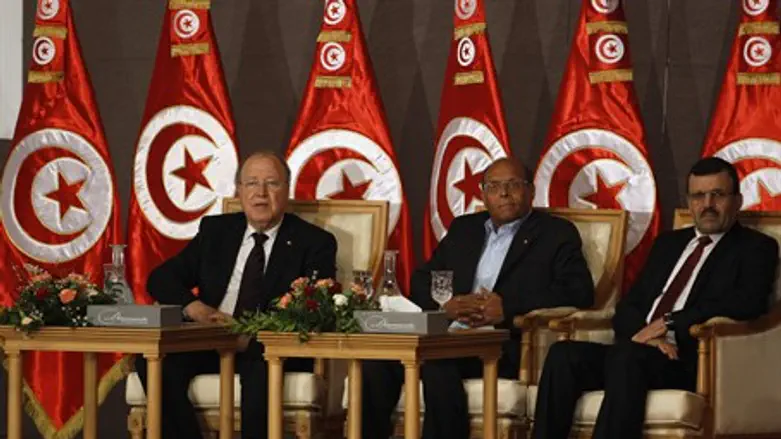
Censure motions against two Tunisian ministers accused of promoting "normalization" with Israel were withdrawn late Friday, just before deputies in the Islamist-dominated parliament were due to take a vote.
The motions were filed late last month against Tourism Minister Amel Karboul and Deputy Interior Minister for Security Ridha Sfar, with documents purporting to show that the latter give written authorization for Israeli tourists to enter Tunisia earlier this year.
Karboul was also accused of receiving an Israeli delegation.
A vote had been expected in the evening but "the two motions of censure have been withdrawn", assembly president Mustapha Ben Jaafar announced to the assembled deputies.
"It was not our intention to attack the ministers. We wished to say that the normalization of ties with Israel in a red line," explained centrist deputy Iyed Dahmani, an avid supporter of the motions just hours earlier.
Leftist deputy Faycel Jadlaoui said the decision not to take the matter to a vote was due to the responses of the two ministers and the fact that half of the 80 signatories to the motion had withdrawn their support.
However, the news came as a surprise to some deputies in the chamber and led to heated exchanges.
It is an open secret that Israelis have been visiting Tunisia for years on the quiet.
The parliamentary debate came a week ahead of an annual pilgrimage that draws Jews from around the world to Tunisia's ancient Ghriba synagogue.
The tourism minister denied receiving an Israeli delegation while defending her comments supporting the entry of tourists regardless of nationality, to boost a key sector of the Tunisian economy that was battered by the turbulence that followed the 2011 revolution.
The deputy interior minister defended himself against charges of promoting normalization with Israel, saying he merely followed procedures that have been in force for years.
"The case is purely administrative... We do not deal with Israeli papers," Sfar said, explaining the tourists coming from the Jewish state had been issued with Tunisian passes, because Tunis does not recognize Israeli passports.
Sfar justified his authorizing the Israelis' entry by the need to respond to an "international campaign" accusing Tunisia of discrimination.
Prime Minister Mehdi Jomaa has tried to brush the matter aside, saying it is important the new tourism season is successful.
"Normalization yes? Normalization no? Let's put these great affairs aside," he told parliament last month.
"Tourism professionals have advised that, for the tourist season to be a success, the Ghriba gathering must be a success."
The debate came just weeks after Israeli tourists aboard an American cruise ship were denied entry.
In response, Miami-based Norwegian Cruise Line announced its ships would not return to Tunisia in a potentially severe blow to a struggling economy three years after the ouster of autocrat Zine El Abidine Ben Ali.
In January, Karboul faced criticism from parliamentarians over a trip to Israel she took in 2006 to take part in a UN training program for Palestinian Arab youths.
Karboul subsequently resigned from her post but Prime Minister Mehdi Jomaa refused to accept her resignation.
The debate, which is focused on Israelis only, comes just a week ahead of an annual pilgrimage that draws Jews from around the world to Tunisia's ancient Ghriba synagogue.
While Israel is not recognized by Tunisia, the country still has a small Jewish population of about 1,500, with most Jews having left following the 1967 Six Day War.
More than half are on the southern resort island of Djerba, where the Ghriba synagogue, the focus of the three-day pilgrimage that begins next Friday, is located.